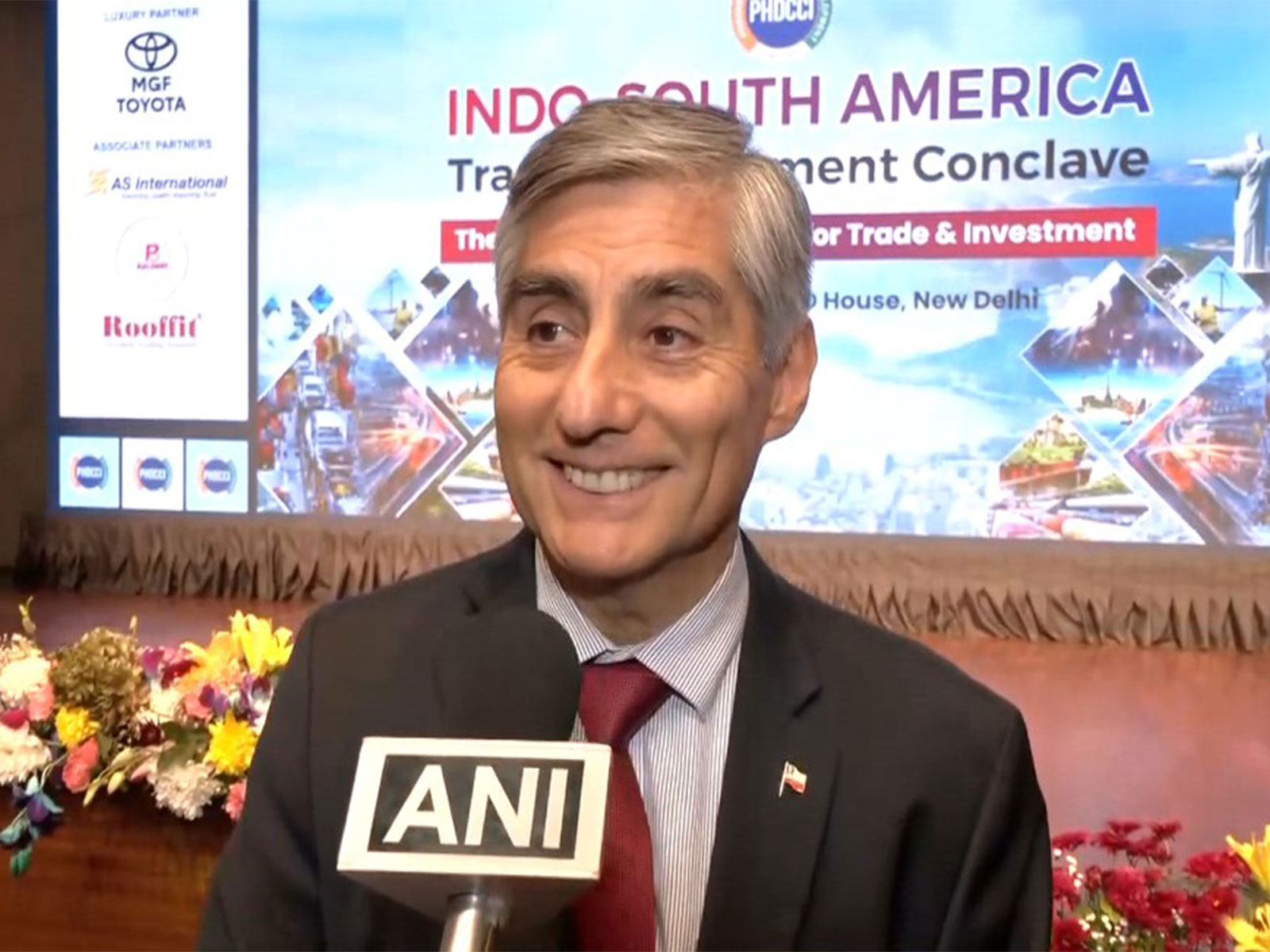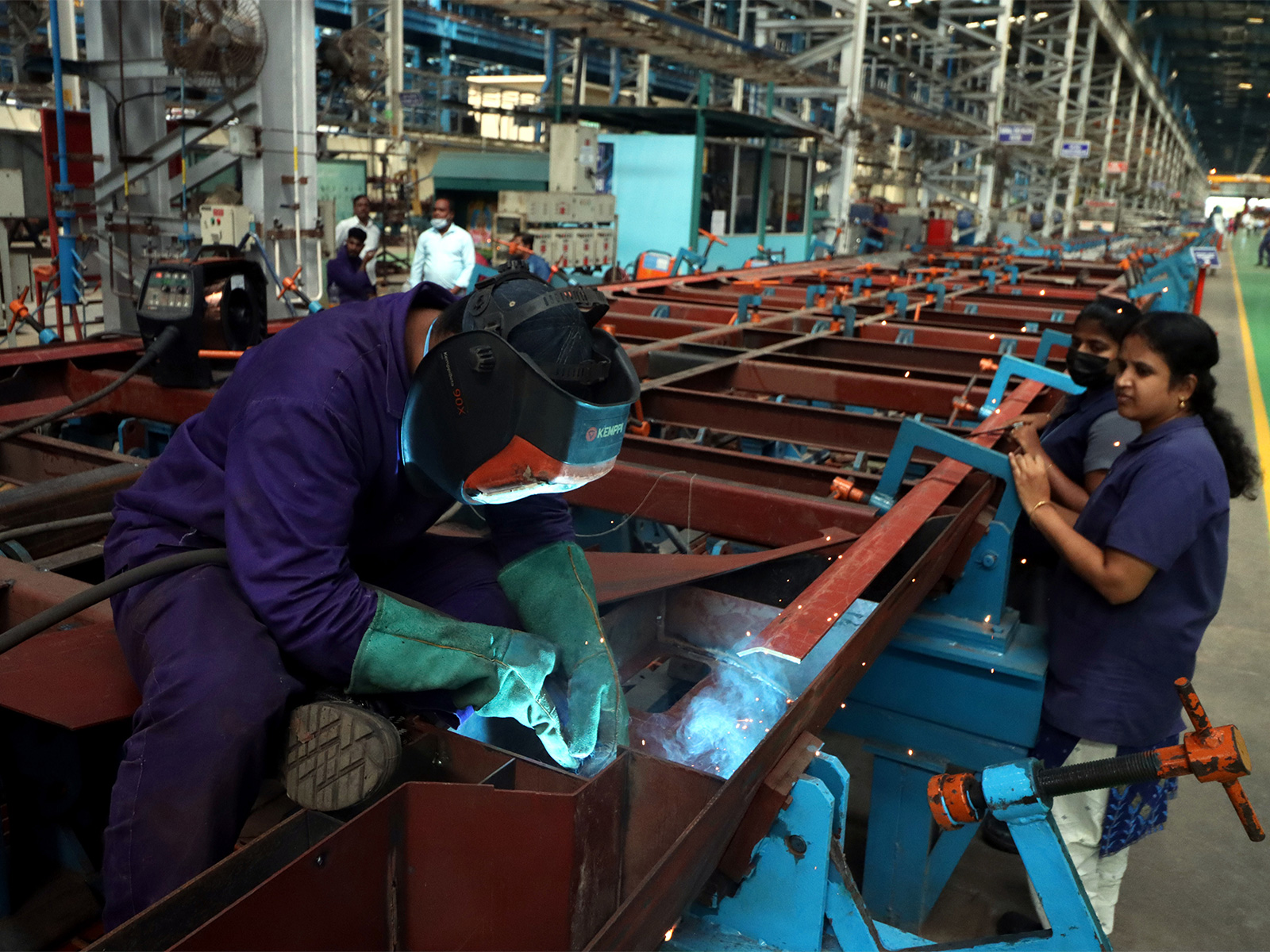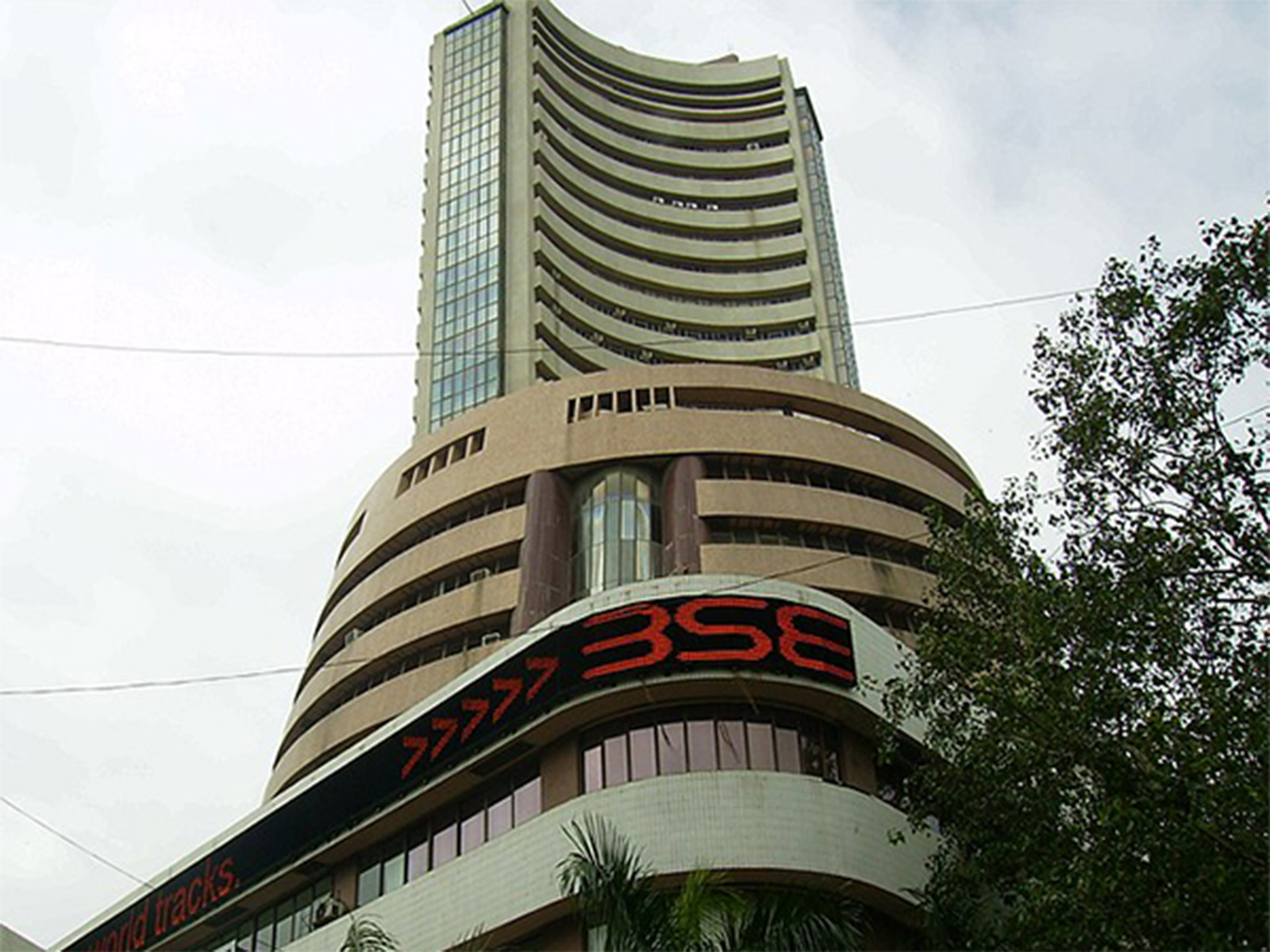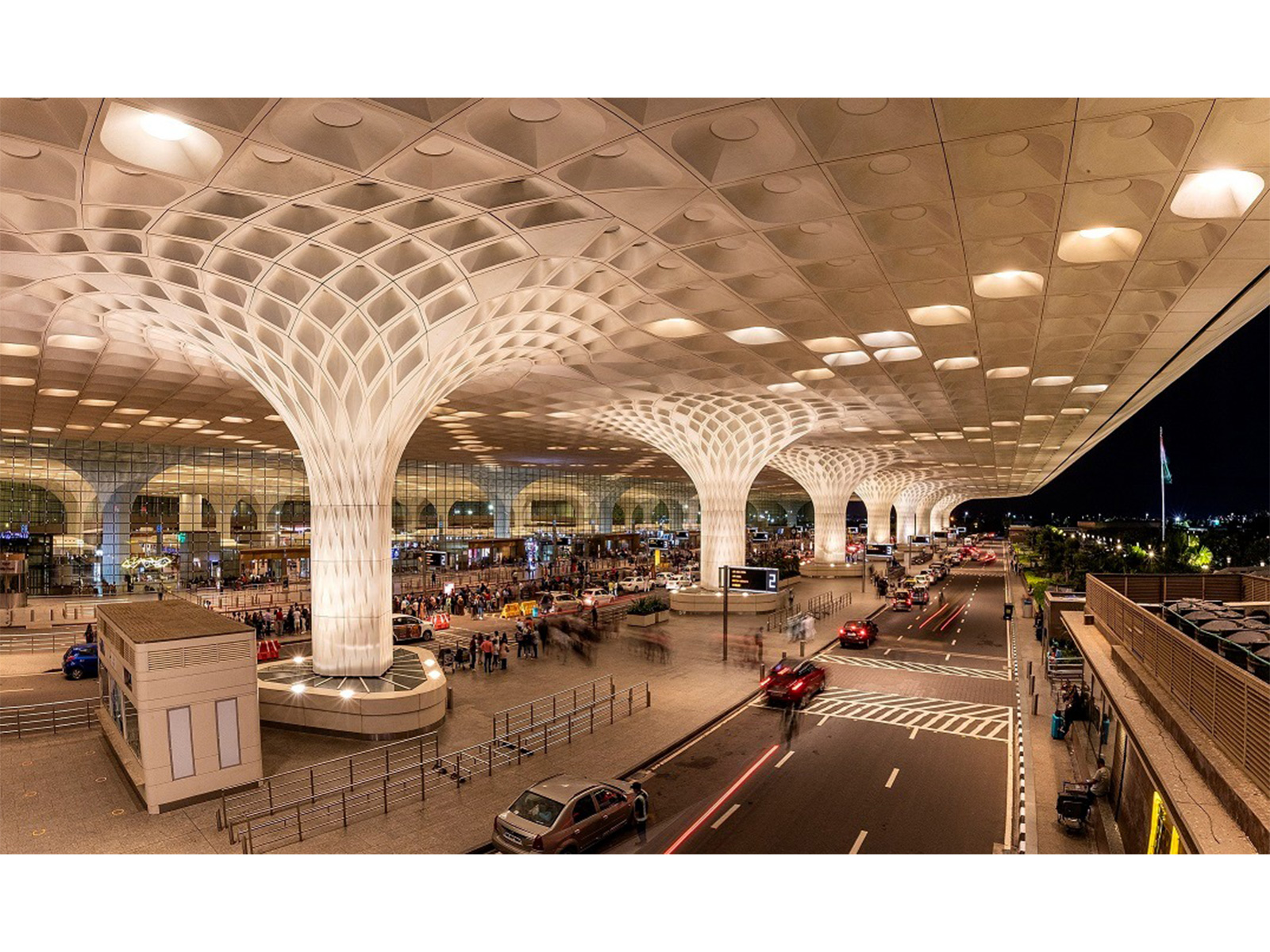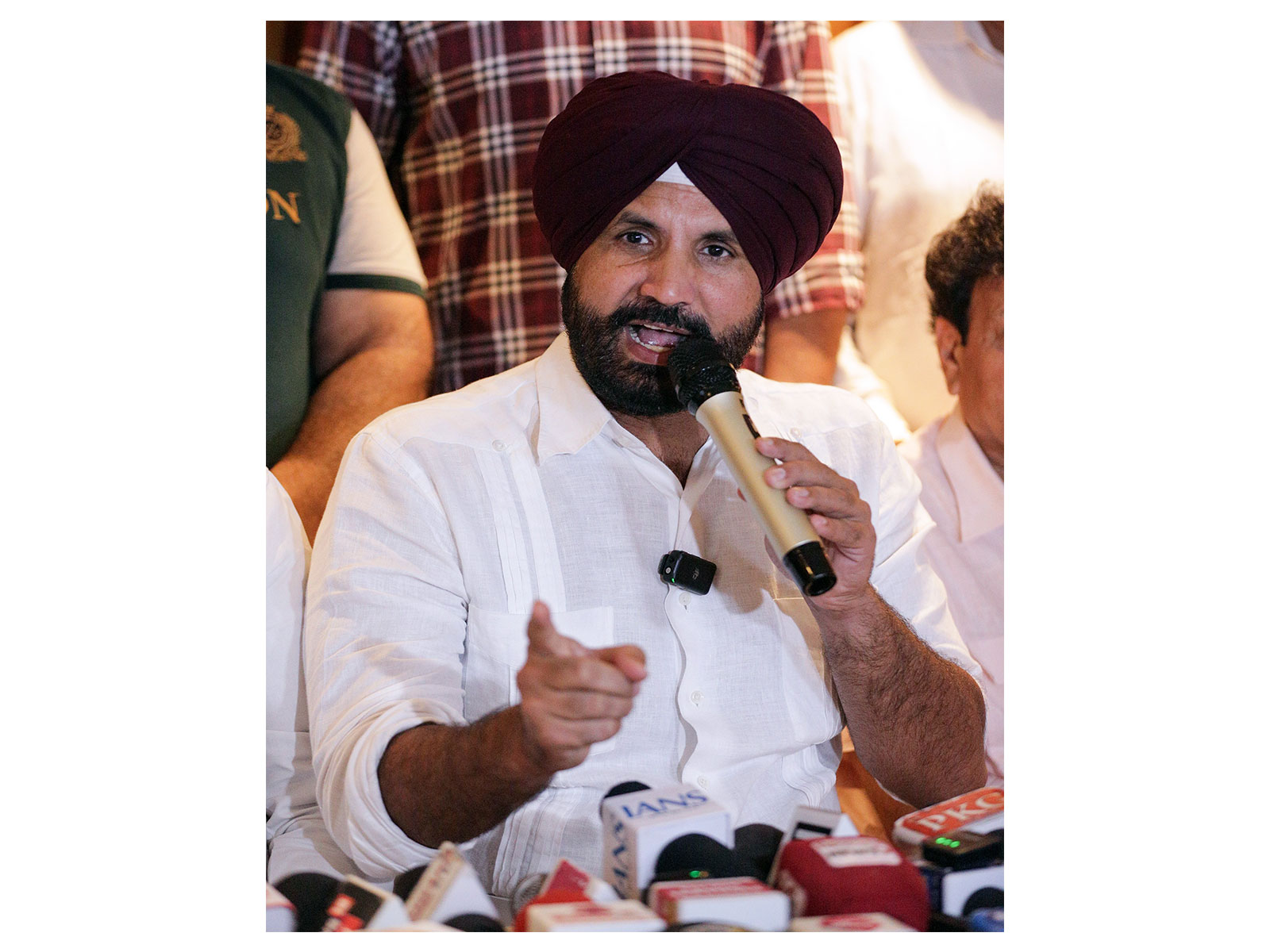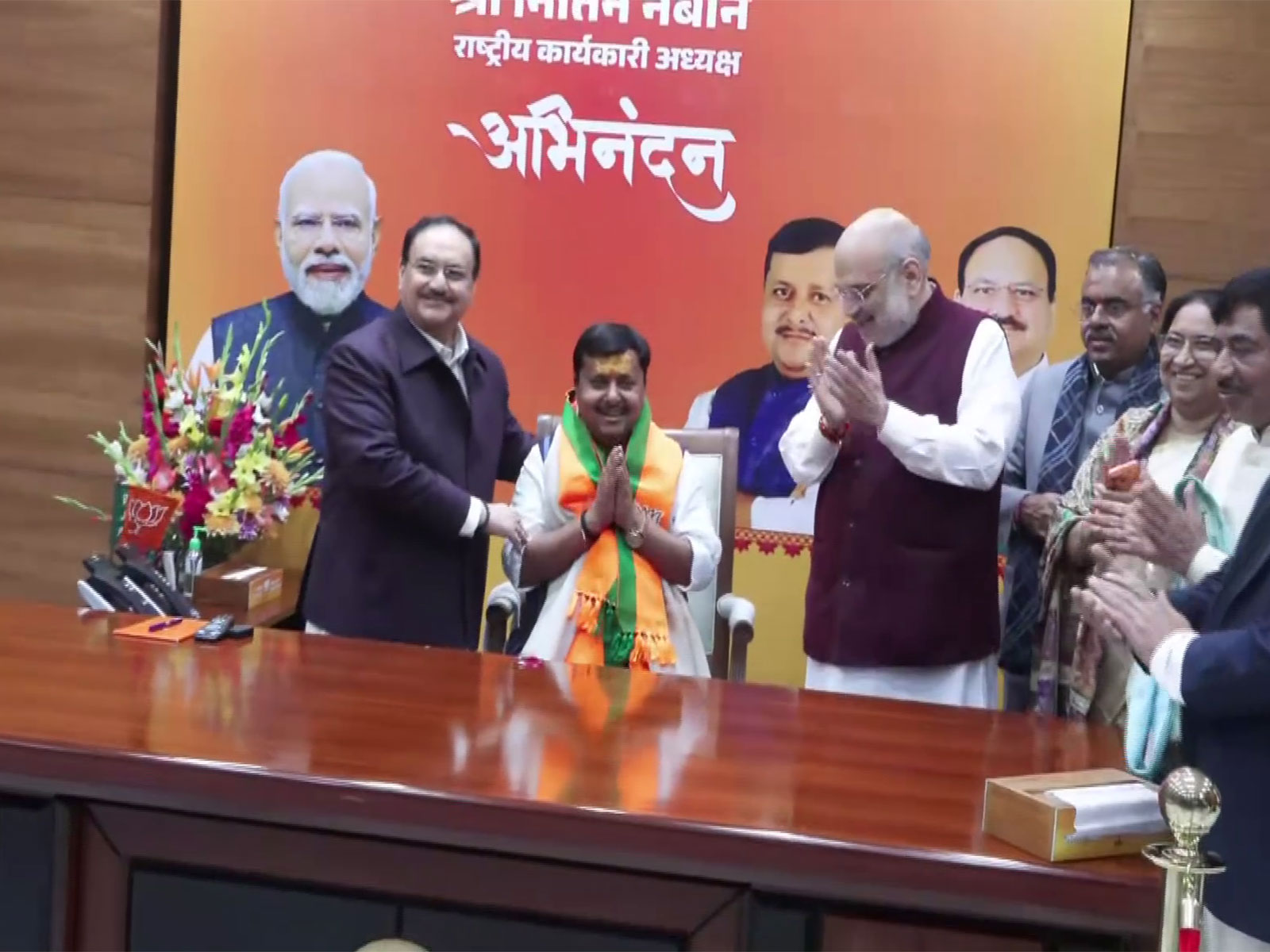Union Budget 2023-24 highlights & complete budget analysis by Rajiv Ranjan
Apr 07, 2023

New Delhi [India], April 7 (ANI/PNN): Union Budget 2023-24 Highlights: Announcing its last full Union Budget 2023 before the 2024 elections, the NDA government focused on a slew of measures that expanded Capital Expenditure spending and tied in various priorities including Green Growth, Youth Power and Inclusive Development. In Union Budget 2023. This was also accompanied by major tax announcements for the salaried class, with changes in tax slabs and a clear intention to shift to the new tax regime.
Union Budget 2023-24
The Union Budget 2023-24 highlighted that the current year's economic growth is estimated to be at 7 per cent, "highest among all the major economies." Finally, with regards to the fiscal deficit, she retained it to the target of 6.4 per cent in the revised estimate for FY2022-23 and reduced it to 5.9 per cent for the next fiscal. Fiscal deficit would be brought down to below 4.5 per cent by 2025-26, Sitharaman said.
Union Budget 2023-24: Size
The total expenditure in BE 2023-24 is estimated at `45,03,097 crore(45.03 Lakh Crore) of which total capital expenditure is '10,00,961 crore (10 Lakh Crore). Union Budget 2023 reflects continuing strong commitment of the Union Government to boost economic growth by investing in infrastructure development leading to an increase in capital expenditure by 37.4 per cent over RE 2022-23.
Effective Capital Expenditure, at 13,70,949 Crore(13.71 Lakh Crore) in BE 2023-24, shows an increase of 30.1 per cent over RE 2022-23.
Resources Transferred to The States in Union Budget 2023-24
In Union Budget 2023 Total resources being transferred to the States including the devolution of State's share, Grants/Loans and releases under Centrally Sponsored Schemes, etc. in BE 2023-24 is `17,97,537 crore(17.98 Lakh Crore), which shows an increase of `1,43,056 crore over Actuals of FY 2021-22.
Union Budget 2023-24: Proposed Expenditure from the budget:
Money from the Union Budget 2023-24 is allotted to various sectors and also assigned to meet expenses. In brief, the outflow is planned as follows:
Sector/Expense Share (in percentage)
Interest payments 20 per cent
States' share of taxes & duties 18 per cent
Central Sector Scheme 17 per cent
Finance Commision & other transfers 9 per cent
Other expenditure 8 per cent
Subsidies 7 per cent
Centrally Sponsored Scheme 9 per cent
Defence 8 per cent
Pensions 4
Union Budget 2023-24 Highlight: Sources of Receipt For the Govt:
To meet the size of the Union Budget 2023, the sources of inflow are:
Source Contribution (in percentage)
Borrowings & Other Liabilities 34 per cent
Goods and Services Tax 17 per cent
Income Tax 15 per cent
Corporation Tax 15 per cent
Union Excise Duties 7 per cent
Non-Tax Revenue 6 per cent
Non-Debt Capital Receipts 2 per cent
Customs 4 per cent
Union Budget 2023-24 Highlight: Fiscal Deficit:
Finance Minister Nirmala Sitharaman presented the Union Budget 2023-24 on a positive roadmap with fiscal deficit for 2023-24 at 5.9 per cent of GDP well below the 6.4 per cent budgeted for 2022-23. The fiscal deficit for 2021-22 was 6.7 per cent, which was lower than the revised budget estimates of 6.9 per cent. With an aim to reduce its fiscal deficit to less than 6% of GDP for the first time since the fiscal year ended March 2020, while increasing capital spending to support growth.
Union Budget 2023-24: All About the Union Budget 2023-24 Presentation
Fiscal Deficit of 3.5 per cent of GSDP allowed for States of which 0.5 per cenr is tied to Power sector reforms.
The Union Budget 2023-24 has been presented in two parts. The key highlights of the Budget are as follows:-
PART-A of The Union Budget 2023-24
Seven priorities of the Union Budget 2023-24: 'Saptarishi'
1. Inclusive development
2. Reaching last mile
3. Infrastructure and investment
4. unleashing potential
5. Green growth
6. Youth Power
7. Financial Sector
Union Budget 2023-24: Key Numbers:
- Per capita income has more than doubled to Rs 1.97 lakh in around nine years.
- Indian economy has increased in size from being 10th to 5th largest in the world in the past nine years.
- EPFO membership has more than doubled to 27 crore.
- 7,400 crore digital payments of Rs 126 lakh crore has taken place through UPI in 2022.
- 11.7 crore household toilets constructed under Swachh Bharat Mission.
- 9.6 crore LPG connections provided under Ujjwala.
- 220 crore covid vaccination of 102 crore persons.
- 47.8 crore PM Jan Dhan bank accounts.
- Insurance cover for 44.6 crore persons under PM Suraksha Bima and PM Jeevan Jyoti Yojana.
- Cash transfer of Rs 2.2 lakh crore to over 11.4 crore farmers under PM Kisan Samman Nidhi.
Union Budget 2023: Railways gets Rs 2.40 lakh crore capital outlay
Union Budget 2023-24 Highlights: Key Schemes and their budgetary provisions:
- Atmanirbhar Clean Plant Program with an outlay of Rs 2200 crore to be launched to boost availability of disease-free, quality planting material for high value horticultural crops.
- 157 new nursing colleges to be established in co-location with the existing 157 medical colleges established since 2014.
- Centre to recruit 38,800 teachers and support staff for the 740 Eklavya Model Residential Schools, serving 3.5 lakh tribal students over the next three years.
- Outlay for PM Awas Yojana is being enhanced by 66 per cent to over Rs. 79,000 crore.
- Capital outlay of Rs 2.40 lakh crore has been provided for the Railways, which is the highest ever outlay and about nine times the outlay made in 2013-14.
- Urban Infrastructure Development Fund (UIDF) will be established through use of priority Sector Lending shortfall, which will be managed by the national Housing Bank, and will be used by public agencies to create urban infrastructure in Tier 2 and Tier 3 cities.
- Entity DigiLocker to be setup for use by MSMEs, large business and charitable trusts to store and share documents online securely.
- 100 labs to be setup for 5G services based application development to realize a new range of opportunities, business models, and employment potential.
- 500 new 'waste to wealth' plants under GOBARdhan (Galvanizing Organic Bio-Agro Resources Dhan) scheme to be established for promoting circular economy at total investment of Rs 10,000 crore. 5 per cent compressed biogas mandate to be introduced for all organizations marketing natural and bio gas.
- Centre to facilitate one crore farmers to adopt natural farming over the next three years. For this, 10,000 Bio-Input Resource Centres to be set-up, creating a national-level distributed micro-fertilizer and pesticide manufacturing network.
- Pradhan Mantri Kaushal Vikas Yojana 4.0, to be launched to skill lakhs of youth within the next three years covering new age courses for Industry 4.0 like coding, AI, robotics, mechatronics, IOT, 3D printing, drones, and soft skills.
- 30 Skill India International Centres to be set up across different States to skill youth for international opportunities.
- Revamped credit guarantee scheme for MSMEs to take effect from 1st April 2023 through infusion of Rs 9,000 crore in the corpus. This scheme would enable additional collateral-free guaranteed credit of Rs 2 lakh crore and also reduce the cost of the credit by about 1 per cent.
- Central Processing Centre to be setup for faster response to companies through centralized handling of various forms filed with field offices under the Companies Act.
- Sickle Cell Anaemia elimination mission to be launched.
- Joint public and Private Medical research to be encouraged via select ICMR labs for encouraging collaborative research and innovation.
- New Programme to promote research in Pharmaceuticals to be launched. The maximum deposit limit for Senior Citizen Savings Scheme to be enhanced from Rs 15 lakh to Rs 30 lakh.
- Rs 10 lakh crore capital investment, a steep increase of 33 per cent for third year in a row, to enhance growth potential and job creation, crowd-in private investments, and provide a cushion against global headwinds.
- Aspirational Blocks Programme covering 500 blocks launched for saturation of essential government services across multiple domains such as health, nutrition, education, agriculture, water resources, financial inclusion, skill development, and basic infrastructure.
- Rs 15,000 crore for implementation of Pradhan Mantri PVTG Development Mission over the next three years under the Development Action Plan for the Scheduled Tribes.
- Investment of Rs. 75,000 crore, including Rs. 15,000 crore from private sources, for one hundred critical transport infrastructure projects, for last and first mile connectivity for ports, coal, steel, fertilizer, and food grains sectors.
- Rs 5,300 crore to be given as central assistance to Upper Bhadra Project to provide sustainable micro irrigation and filling up of surface tanks for drinking water.
- 'Bharat Shared Repository of Inscriptions' to be set up in a digital epigraphy museum, with digitization of one lakh ancient inscriptions in the first stage.
- iGOT Karmayogi, an integrated online training platform, launched to provide continuous learning opportunities for lakhs of government employees to upgrade their skills and facilitate people-centric approach.
- More than 39,000 compliances reduced and more than 3,400 legal provisions decriminalized to enhance Ease Of Doing Business.
- Jan Vishwas Bill to amend 42 Central Acts have been introduced to further trust-based governance.
- Three centres of excellence for Artificial Intelligence to be set-up in top educational institutions to realise the vision of "Make AI in India and Make AI work for India".
- National Data Governance Policy to be brought out to unleash innovation and research by start-ups and academia.
- One stop solution for reconciliation and updation of identity and address of individuals to be established using DigiLocker service and Aadhaar as foundational identity.
- PAN will be used as the common identifier for all digital systems of specified government agencies to bring in Ease of Doing Business.
- 95 per cent of the forfeited amount relating to bid or performance security, will be returned to MSME's by government and government undertakings in cases the MSME's failed to execute contracts during Covid period.
- Result Based Financing to better allocate scarce resources for competing development needs.
Phase-3 of the E-Courts project to be launched with an outlay of Rs. 7,000 crore for efficient administration of justice.
- Rs 35000 crore outlay for energy security, energy transition and net zero objectives.
- Battery energy storage systems to be promoted to steer the economy on the sustainable development path.
- 20,700 crore outlay provided for renewable energy grid integration and evacuation from Ladakh.
- "PM Programme for Restoration, Awareness, Nourishment and Amelioration of Mother Earth" (PM-PRANAM) to be launched to incentivize States and Union Territories to promote alternative fertilizers and balanced use of chemical fertilizers.
- Mangrove Initiative for Shoreline Habitats & Tangible Incomes', MISHTI, to be taken up for mangrove plantation along the coastline and on salt pan lands, through convergence between MGNREGS, CAMPA Fund and other sources.
- Green Credit Programme to be notified under the Environment (Protection) Act to incentivize and mobilize additional resources for environmentally sustainable and responsive actions.
- Amrit Dharohar scheme to be implemented over the next three years to encourage optimal use of wetlands, enhance bio-diversity, carbon stock, eco-tourism opportunities and income generation for local communities.
- A unified Skill India Digital platform to be launched for enabling demand-based formal skilling, linking with employers including MSMEs, and facilitating access to entrepreneurship schemes.
- Direct Benefit Transfer under a pan-India National Apprenticeship Promotion Scheme to be rolled out to provide stipend support to 47 lakh youth in three years.
- At least 50 tourist destinations to be selected through challenge mode; to be developed as a complete package for domestic and foreign tourists.
- Sector specific skilling and entrepreneurship development to be dovetailed to achieve the objectives of the 'Dekho Apna Desh' initiative.
- Tourism infrastructure and amenities to be facilitated in border villages through the Vibrant Villages Programme.
- States to be encouraged to set up a Unity Mall for promotion and sale of their own and also all others states' ODOPs (One District, One Product), GI products and handicrafts.
- National Financial Information Registry to be set up to serve as the central repository of financial and ancillary information for facilitating efficient flow of credit, promoting financial inclusion, and fostering financial stability. A new legislative framework to be designed in consultation with RBI to govern this credit public infrastructure.
- Financial sector regulators to carry out a comprehensive review of existing regulations in consultation with public and regulated entities. Time limits to decide the applications under various regulations would also be laid down.
- To enhance business activities in GIFT IFSC, the following measures to be taken.
- Delegating powers under the SEZ Act to IFSCA to avoid dual regulation.
- Setting up a single window IT system for registration and approval from IFSCA, SEZ authorities, GSTN, RBI, SEBI and IRDAI.
- Permitting acquisition financing by IFSC Banking Units of foreign bank.
- Establishing a subsidiary of EXIM Bank for trade re-financing.
- Amending IFSCA Act for statutory provisions for arbitration, ancillary services, and avoiding dual regulation under SEZ Act.
- R & D grant for Lab Grown Diamonds (LGD) sector to encourage indigenous production of LGD seeds and machines and to reduce import dependency.
- Annual production of 5 MMT under Green Hydrogen Mission to be targeted by 2030 to facilitate transition of the economy to low carbon intensity and to reduce dependence on fossil fuel imports.
- Recognizing offshore derivative instruments as valid contracts.
- Amendments proposed to the Banking Regulation Act, the Banking Companies Act and the Reserve of India Act to improve bank governance and enhance investors' protection.
- Countries looking for digital continuity solutions would be facilitated for setting up of their Data Embassies in GIFT IFSC.
- SEBI to be empowered to develop, regulate, maintain and enforce norms and standards for education in the National Institute of Securities Markets and to recognize award of degrees, diplomas and certificates.
- Integrated IT portal to be established to enable investors to easily reclaim the unclaimed shares and unpaid dividends from the Investor Education and Protection Fund Authority.
- To commemorate Azadi Ka Amrit Mahotsav, a one-time new small savings scheme, Mahila Samman Savings Certificate to be launched. It will offer deposit facility upto Rs 2 lakh in the name of women or girls for tenure of 2 years (up to March 2025) at fixed interest rate of 7.5 per cent with partial withdrawal option.
Union Budget 2023-24: Capital Expenditure
The central government will spend Rs 10 trillion (Rs 10 lakh crore) on longer-term capital expenditure in 2023/24, extending a strategy adopted to revive growth in the aftermath of the Covid crisis.
The allocation is higher than the Rs 7.5 trillion (Rs 7.5 lakh crore) budgeted in the previous year and the highest on record. The year-on-year increase of 33 per cent is only marginally lower than last year's 35 per cent jump.
Continuation of 50-year interest-free loan to state governments for one more year to spur investment in infrastructure and to incentivize them for complementary policy actions.
Encouragement to states and cities to undertake urban planning reforms and actions to transform our cities into 'sustainable cities of tomorrow'.
Transition from manhole to machine-hole mode by enabling all cities and towns to undertake 100 per cent mechanical desludging of septic tanks and sewers.
Union Budget 2023 Top Updates: 'Highest-ever outlay' for Capital Expenditure
Union Budget 2023-24 Highlights: Agriculture Sector
Agriculture Accelerator Fund to be set-up to encourage agri-startups by young entrepreneurs in rural areas.
- To make India a global hub for 'Shree Anna', the Indian Institute of Millet Research, Hyderabad will be supported as the Centre of Excellence for sharing best practices, research and technologies at the international level.
- Rs 20 lakh crore agricultural credit targeted at animal husbandry, dairy and fisheries
- A new sub-scheme of PM Matsya Sampada Yojana with targeted investment of Rs6,000 crore to be launched to further enable activities of fishermen, fish vendors, and micro & small enterprises, improve value chain efficiencies, and expand the market.
- Digital public infrastructure for agriculture to be built as an open source, open standard and inter operable public good to enable inclusive farmer-centric solutions and support for growth of the agri-tech industry and start-ups.
- Computerisation of 63,000 Primary Agricultural Credit Societies (PACS) with an investment of Rs 2,516 crore initiated.
- Massive decentralised storage capacity to be set up to help farmers store their produce and realize remunerative prices through sale at appropriate times.
Union Budget 2023-24: Education
Cetre's allocation for the Ministry of Education for the next financial year is Rs 1,12,898.97 crore. Notably, this is the highest allocation granted to the ministry ever.
School Education Department's outlay stands at Rs 68,804.85 crore, while the Higher Education Department has been allocated Rs 44,094.62 crore.
- District Institutes of Education and Training to be developed as vibrant institutes of excellence for Teachers' Training.
- A National Digital Library for Children and Adolescents to be set up for facilitating the availability of quality books across geographies, languages, genres and levels, and device-agnostic accessibility.
Union Budget 2023-24: Health Sector
The Union Budget 2023 has allocated a whopping Rs 88,956 crore to health expenditure, a Rs 2,350 crore hike of 2.71 percent from Rs 86,606 crore in FY23.
Ministry of Health and Family Welfare
Year Allocation
FY24 Rs 89,155 crore
FY23 Rs 86,200.65 crore
FY22 Rs 73,931.77 crore
FY21 Rs 67,111.8 crore
From the total ministry budget, Rs 86,175 crore will go to the Department of Health and Family Welfare while the Department of Health Research will get Rs 2,980 crore.
Union Budget 2023-24: Defence Sector
The defence budget was increased to Rs 5.94 lakh crore for 2023-24 from last year's allocation of Rs 5.25 lakh crore, a total of Rs 1.62 lakh crore has been set aside for capital expenditure that includes purchasing new weapons, aircraft, warships and other military hardware. According to 2023-24 budget documents, an allocation of Rs 2,70,120 crore has been made for revenue expenditure that includes expenses on payment of salaries and maintenance of establishments.
PART-B of The Union Budget 2023-24
Union Budget 2023-24: DIRECT TAXES:
- Direct Tax proposals aim to maintain continuity and stability of taxation, further simplify and rationalise various provisions to reduce the compliance burden, promote the entrepreneurial spirit and provide tax relief to citizens.
- Constant endeavour of the Income Tax Department to improve Tax Payers Services by making compliance easy and smooth.
- To further improve tax payer services, proposal to roll out a next-generation Common IT Return Form for tax payer convenience, along with plans to strengthen the grievance redressal mechanism.
- Rebate limit of Personal Income Tax to be increased to Rs. 7 lakh from the current Rs. 5 lakh in the new tax regime. Thus, persons in the new tax regime, with income up to Rs. 7 lakh to not pay any tax.
- Tax structure in new personal income tax regime, introduced in 2020 with six income slabs, to change by reducing the number of slabs to five and increasing the tax exemption limit to Rs. 3 lakh. Change to provide major relief to all tax payers in the new regime.
Union Budget 2023: GST collection at nearly Rs 1.56 lakh crore in January
Union Budget 2023-24: New tax rates
Total Income (Rs) Rate (per cent)
Up to 3,00,000 Nil
From 3,00,001 to 6,00,000 5
From 6,00,001 to 9,00,000 10
From 9,00,001 to 12,00,000 15
From 12,00,001 to 15,00,000 20
Above 15,00,000 30
- Proposal to extend the benefit of standard deduction of Rs. 50,000 to salaried individual, and deduction from family pension up to Rs. 15,000, in the new tax regime.
- Highest surcharge rate to reduce from 37 per cent to 25 per cent in the new tax regime. This to further result in reduction of the maximum personal income tax rate to 39 per cent.
- The limit for tax exemption on leave encashment on retirement of non-government salaried employees to increase to Rs. 25 lakh.
- The new income tax regime to be made the default tax regime. However, citizens will continue to have the option to avail the benefit of the old tax regime.
- Enhanced limits for micro-enterprises and certain professionals for availing the benefit of presumptive taxation proposed. Increased limit to apply only in case the amount or aggregate of the amounts received during the year, in cash, does not exceed five per cent of the total gross receipts/turnover.
- Deduction for expenditure incurred on payments made to MSMEs to be allowed only when payment is actually made in order to support MSMEs in timely receipt of payments.
- New co-operatives that commence manufacturing activities till 31.3.2024 to get the benefit of a lower tax rate of 15 per cent, as presently available to new manufacturing companies.
- Opportunity provided to sugar co-operatives to claim payments made to sugarcane farmers for the period prior to assessment year 2016-17 as expenditure. This expected to provide them a relief of almost Rs. 10,000 crore.
- Provision of a higher limit of Rs. 2 lakh per member for cash deposits to and loans in cash by Primary Agricultural Co-operative Societies (PACS) and Primary Co-operative Agriculture and Rural Development Banks (PCARDBs).
- A higher limit of Rs. 3 crore for TDS on cash withdrawal to be provided to co-operative societies.
- Date of incorporation for income tax benefits to start-ups to be extended from 31.03.23 to 31.3.24.
- Proposal to provide the benefit of carry forward of losses on change of shareholding of start-ups from seven years of incorporation to ten years.
- Deduction from capital gains on investment in residential house under sections 54 and 54F to be capped at Rs. 10 crore for better targeting of tax concessions and exemptions.
- Proposal to limit income tax exemption from proceeds of insurance policies with very high value. Where aggregate of premium for life insurance policies (other than ULIP) issued on or after 1st April, 2023 is above Rs. 5 lakh, income from only those policies with aggregate premium up to Rs. 5 lakh shall be exempt.
- Income of authorities, boards and commissions set up by statutes of the Union or State for the purpose of housing, development of cities, towns and villages, and regulating, or regulating and developing an activity or matter, proposed to be exempted from income tax.
- Minimum threshold of Rs. 10,000/- for TDS to be removed and taxability relating to online gaming to be clarified. Proposal to provide for TDS and taxability on net winnings at the time of withdrawal or at the end of the financial year.
- Conversion of gold into electronic gold receipt and vice versa not to be treated as capital gain.
- TDS rate to be reduced from 30 per cent to 20 per cent on taxable portion of EPF withdrawal in non-PAN cases.
- Income from Market Linked Debentures to be taxed.
- Deployment of about 100 Joint Commissioners for disposal of small appeals in order to reduce the pendency of appeals at Commissioner level.
- Increased selectivity in taking up appeal cases for scrutiny of returns already received this year.
- Period of tax benefits to funds relocating to IFSC, GIFT City extended till 31.03.2025.
- Certain acts of omission of liquidators under section 276A of the Income Tax Act to be decriminalized with effect from 1st April, 2023.
- Carry forward of losses on strategic disinvestment including that of IDBI Bank to be allowed.
- Agniveer Fund to be provided EEE status. The payment received from the Agniveer Corpus Fund by the Agniveers enrolled in Agnipath Scheme, 2022 proposed to be exempt from taxes. Deduction in the computation of total income is proposed to be allowed to the Agniveer on the contribution made by him or the Central Government to his Seva Nidhi account.
Union Budget 2023: Top 10 Key Highlights; FM Sitharaman says Indian economy heading towards bright future
Union Budget 2023-24: INDIRECT TAXES
- Number of basic customs duty rates on goods, other than textiles and agriculture, reduced to 13 from 21.
- Minor changes in the basic custom duties, cesses and surcharges on some items including toys, bicycles, automobiles and naphtha.
- Excise duty exempted on GST-paid compressed bio gas contained in blended compressed natural gas.
- Customs Duty on specified capital goods/machinery for manufacture of lithium-ion cell for use in battery of electrically operated vehicle (EVs) extended to 31.03.2024
- Customs duty exempted on vehicles, specified automobile parts/components, sub-systems and tyres when imported by notified testing agencies, for the purpose of testing and/ or certification, subject to conditions.
- Customs duty on camera lens and its inputs/parts for use in manufacture of camera module of cellular mobile phone reduced to zero and concessional duty on lithium-ion cells for batteries extended for another year.
- Basic customs duty reduced on parts of open cells of TV panels to 2.5 per cent.
- Basic customs duty on electric kitchen chimney increased to 15 per cent from 7.5 per cent.
- Basic customs duty on heat coil for manufacture of electric kitchen chimneys reduced to 15 per cent from 20 per cent.
- Denatured ethyl alcohol used in chemical industry exempted from basic customs duty.
- Basic customs duty reduced on acid grade fluorspar (containing by weight more than 97 per cent of calcium fluoride) to 2.5 per cent from 5 per cent.
- Basic customs duty on crude glycerin for use in manufacture of epicholorhydrin reduced to 2.5 per cent from 7.5 per cent.
- Duty reduced on key inputs for domestic manufacture of shrimp feed.
- Basic customs duty reduced on seeds used in the manufacture of lab grown diamonds.
- Duties on articles made from dore and bars of gold and platinum increased.
- Import duty on silver dore, bars and articles increased.
- Basic Customs Duty exemption on raw materials for manufacture of CRGO Steel, ferrous scrap and nickel cathode continued.
- Concessional BCD of 2.5 per cent on copper scrap is continued.
- Basic customs duty rate on compounded rubber increased to 25 per cent from 10 per cent or 30 per kg whichever is lower.
- National Calamity Contingent Duty (NCCD) on specified cigarettes revised upwards by about 16 per cent.
Union Budget 2023-24: Legislative Changes in Customs Laws:
- Customs Act, 1962 to be amended to specify a time limit of nine months from date of filing application for passing final order by Settlement Commission.
- Customs Tariff Act to be amended to clarify the intent and scope of provisions relating to Anti-Dumping Duty (ADD), Countervailing Duty (CVD), and Safeguard Measures.
Union Budget 2023-24: CGST Act to be amended
- To raise the minimum threshold of tax amount for launching prosecution under GST from one crore to two crore;
- To reduce the compounding amount from the present range of 50 to 150 per cent of tax amount to the range of 25 to 100 per cent;
- decriminalise certain offences;
- To restrict filing of returns/statements to a maximum period of three years from the due date of filing of the relevant return/statement; and
- To enable unregistered suppliers and composition taxpayers to make intra-state supply of goods through E-Commerce Operators (ECOs).
This story is provided by PNN. ANI will not be responsible in any way for the content of this article. (ANI/PNN)
